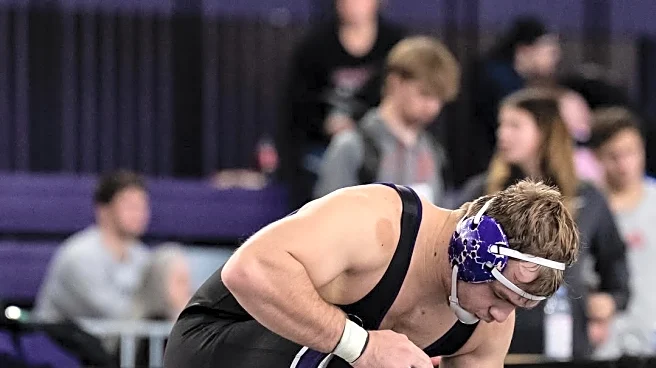What's Happening?
Sister Jean, whose full name is Jean Dolores Schmidt, has announced her retirement from her role as campus minister and men's basketball team chaplain at Loyola Chicago at the age of 106. Known for her spirited presence during Loyola's 2018 NCAA tournament run, Sister Jean became a beloved figure in college basketball, often seen courtside as the Ramblers advanced to the Final Four. Her retirement comes amid health concerns, including a summer cold and other issues that have kept her from campus recently. Loyola Chicago's president, Mark Reed, confirmed that while Sister Jean is no longer physically present on campus, she remains a cherished advisor and supporter of the university's teams.
Why It's Important?
Sister Jean's retirement marks the end of an era for Loyola Chicago and the broader college basketball community. Her presence during the 2018 NCAA tournament brought national attention to the university and highlighted the unique role she played as both a spiritual and motivational figure for the team. Her influence extended beyond the basketball court, as she was known for her personal interactions with students and her dedication to the university's mission. Sister Jean's legacy will continue to inspire both current and future generations at Loyola Chicago, emphasizing the importance of community and spirit in collegiate sports.
What's Next?
While Sister Jean will no longer be physically present on campus, her impact is expected to endure through her continued support and prayers for the Loyola community. The university may seek to honor her contributions through events or dedications, ensuring her legacy remains a part of Loyola Chicago's identity. The basketball team and university community will likely continue to draw inspiration from her story, fostering a sense of unity and perseverance that she embodied during her tenure.
Beyond the Headlines
Sister Jean's story highlights the intersection of sports, faith, and education, demonstrating how figures outside of the traditional athletic sphere can profoundly influence a team's dynamics and public perception. Her role as a chaplain and advisor underscores the importance of holistic support systems in collegiate sports, where emotional and spiritual guidance can be as crucial as physical training. Her retirement prompts reflection on the broader cultural and ethical dimensions of sports, where community figures can play pivotal roles in shaping team identity and morale.










